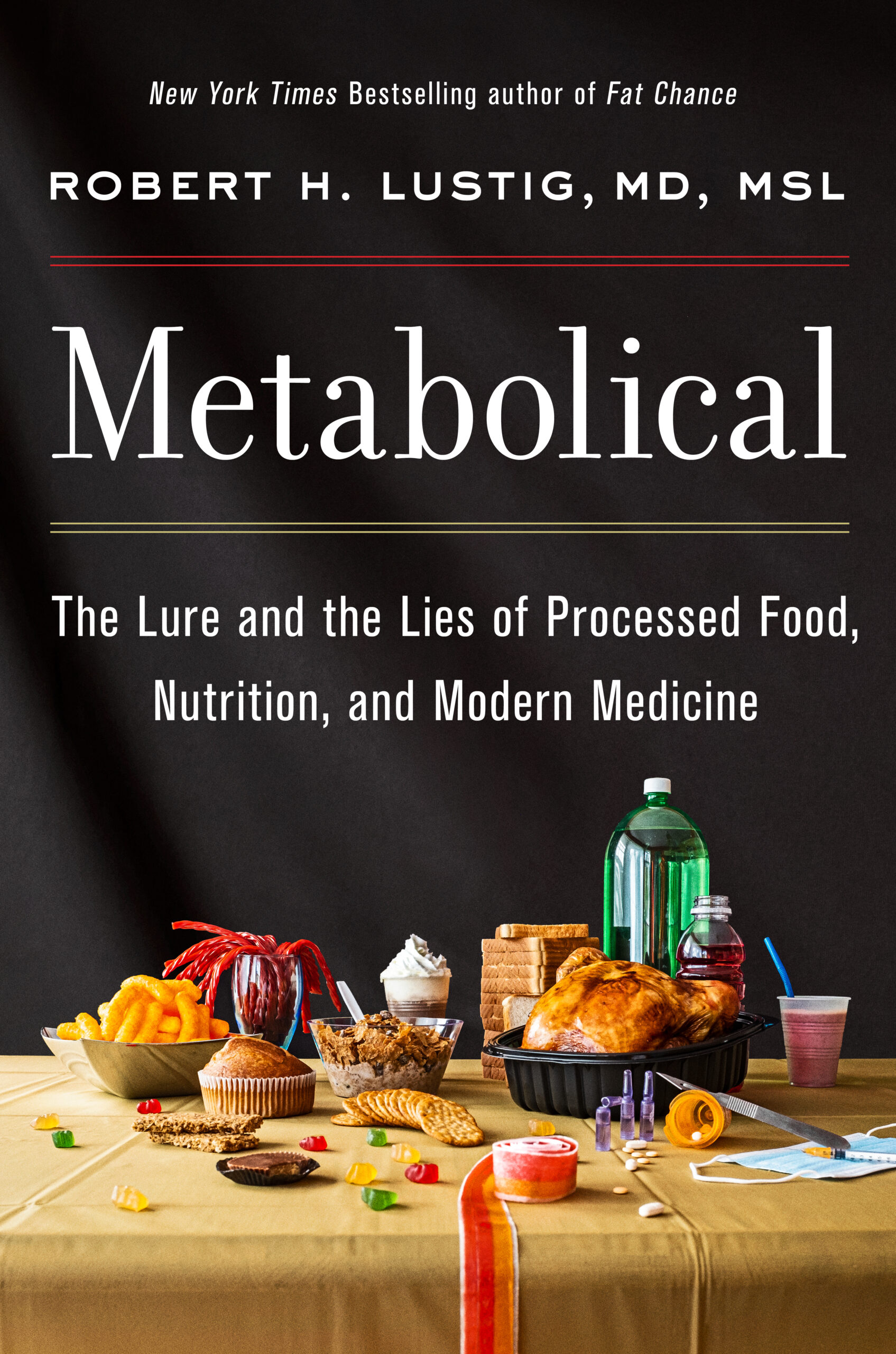Scientific evidence
Research links relevant to the metabolic matrixMetabolic Health & Nutrition: A Convergence of Science & Practice
While the connection between metabolic health and nutrition may seem obvious to some, the intersection and integration of these seemingly separate fields is hampered by much confusion and obfuscation. Nutrition science simply cannot be a science when it leaves out metabolism. Catchy narratives such as “farm to fork” leave metabolism entirely out of the narrative. Our food system and human nutrition don’t end at the tip of the fork – all foods and beverages end up in the human body, and how they are metabolized is the key to understanding and halting the relentless march of diet-related disease that is ravaging global health. In order for true food system change to occur, nutrition science must incorporate metabolism as its north star. Consider the fact that the global cost of diabetes, just one of many metabolic diseases affecting our health and economies, is estimated to double to a crippling $2.5 trillion by 2030. Diverse fields now studying metabolism are connecting the dots with many areas of medicine and challenging myths and marketing that have been promulgated by the food and beverage industry.
Fructose Reduction
Restricting excess added sugar in children’s diets will improve metabolic health, and reduce risk of developing type 2 diabetes, non-alcoholic fatty liver disease, abnormal cholesterol, high blood pressure, and heart disease. Decreasing added sugar in the diet is a key to preventing chronic disease. In a landmark study, the metabolic improvements from restricting fructose in children’s diets were documented and were unrelated to caloric intake, or changes in weight or body fat. Read more here and find links to the papers published on the study.
The History of Obesity Research
Perhaps the most unexpected development in pediatric endocrinology in the past 50 years has been the recognition of obesity as an endocrine/metabolic disorder rather than a life choice or moral failing. This review article provides an insightful overview of a health issue that now affects every country on earth.
Obesogens
Much research is emerging on the topic of “Obesogens.” Read the latest paper on obesity, “Obesogens: a unifying theory for the global rise in obesity,” Obesity is caused by genetic and environmental components. It is commonly believed that obesity is caused by an energy imbalance caused by eating too much and exercising too little. The emerging evidence points to elements in the environment that alter metabolic energy exchange: obesogens. Obesogens are chemicals in our environment that disrupt our endocrine systems and have significant impacts on our metabolic well-being. The obesogen hypothesis focuses on exposures to endocrine disruptors and other chemicals that disrupt the development and function of the adipose tissue, liver, pancreas, gastrointestinal tract, and brain, setting the stage for a wide range of metabolic disorders. The role of environmental chemicals in obesity has garnered increased attention in academic and policy spheres. Read the insightful article, Obesogens: An Environmental Link to Obesity, to learn more.
Fats and the Brain
Nutrition plays a key role in psychiatric disorders. Clinical studies continue to add up and link the “SAD” (Standard American Diet) or “Western Diet” to poorer mental health outcomes and increased risk of psychiatric illness. The emerging field of Nutritional Psychiatry shares evidence that low levels of brain-selective nutrients are linked to declines in cognitive performance, increased symptoms of depression and attention deficits, problems with sleep, fatigue, mood swings, irritability, and differences in brain structures (such as a smaller hippocampus, the region of the brain associated with learning and memory). Most medical doctors receive inadequate training in nutrition so the link between the food we eat to our brain health or our child’s learning and behavior is poorly understood and diagnosed. One of the key nutrients we need to maintain healthy brains is healthy dietary fat. Sadly, the myths promulgated supporting “low-fat” diets have done enormous harm to our collective brain health.
Culinary Medicine
Many health issues affecting global health are associated with poor eating habits and nutrition. Education of patients afflicted by dietary-related diseases explaining that healthy eating and nutrition is essential to maintaining health. Regretably, many healthcare practitioners feel their nutritional education and ability to communicate practical, effective guidance in this area is lacking.
“According to the 2019 Global Burden of Disease Study of 195 countries, dietary factors are the single leading cause of death, exacting an even greater health burden than smoking. For that reason, if medical education were to be based solely on the needs of patient and population health, nutrition would surely be meaningfully addressed. But, in defiance of the obvious need for physicians to possess, at minimum, solid foundational skills in clinical nutrition, medical education in nutrition across the globe is decidedly lacking.” -Jennifer Crowley, The Lancet Planetary Health
Organizations such as CulinaryMedicine.Org provide medical professionals, food service professionals, students, patients, and community members with hands-on culinary training and lifestyle lessons using an evidence-based approach that aligns with current medical literature.
Food Data Science
Significant advances are being made in improving the availability and quality of food system-related data, but huge gaps exist across all sectors of the food system, including supply chains, national scale food systems, ingredient information, and diverse outcomes related to metabolic health and nutrition. Data availability and quality vary dramatically across sectors, consumer groups, science, and medicine. Differences include a lack of consistency, standards, resources, and priorities related to data collection and monitoring. The U.S.A. is the only country with centralized databases on food, and these are poorly maintained, lack enforcement, and consistent funding. The metabolic matrix is supported by Perfact, a cutting-edge food data science platform that leaps past these significant hurdles, and provides a range of solutions for consumers, industry, nonprofits, healthcare, and other sectors.

Much inspiration for the metabolic matric work comes from Dr. Robert Lustig and his work, including his most recent book, Metabolical. Over a thousand scientific references were provided by Dr. Lustig for Metabolical, published here. The reference list is organized based on: 1) page number, and 2) “phrase capture”. If you find a concept in the book that needs corroboration, just click on the page number, and you’ll get the list of references for that page. Then click on the specific reference, and you’ll be brought directly to the journal article, report, or newspaper clipping, so you can see for yourself.
The New York Times bestselling author of Fat Chance explains the eight pathologies that underlie all chronic disease, documents how processed food has impacted them to ruin our health, economy, and environment over the past 50 years, and proposes an urgent manifesto and strategy to cure both us and the planet.
Dr. Robert Lustig, a pediatric neuroendocrinologist who has long been on the cutting edge of medicine and science, challenges our current healthcare paradigm which has gone off the rails under the influence of Big Food, Big Pharma, and Big Government.
You can’t solve a problem if you don’t know what the problem is. One of Lustig’s singular gifts as a communicator is his ability to “connect the dots” for the general reader, in order to unpack the scientific data and concepts behind his arguments, as he tells the “real story of food” and “the story of real food.”
Metabolical weaves the interconnected strands of nutrition, health/disease, medicine, environment, and society into a completely new fabric by proving on a scientific basis a series of iconoclastic revelations, among them:
• Medicine for chronic disease treats symptoms, not the disease itself
• You can diagnose your own biochemical profile
• Chronic diseases are not “druggable,” but they are “foodable”
• Processed food isn’t just toxic, it’s addictive
• The war between vegan and keto is a false war—the combatants are on the same side
• Big Food, Big Pharma, and Big Government are on the other side
Making the case that food is the only lever we have to effect biochemical change to improve our health, Lustig explains what to eat based on two novel criteria: protect the liver, and feed the gut. He insists that if we do not fix our food and change the way we eat, we will continue to court chronic disease, bankrupt healthcare, and threaten the planet. But there is hope: this book explains what’s needed to fix all three.
Support the Brain
- Through nutrient-dense foods
- With healthy and brain-essential fats
- With healthy proteins providing sufficient and appropriate amino acids
- With “brain-selective” nutrients which help govern neurotransmitter function
Feed the Gut
- Reduce processed carbohydrates
- Whole intact food (cellular) matrix
- Provide prebiotic nourishment (Soluble fiber & Insoluble fiber)
- Replace probiotic nourishment (gut microbiota)
Scientific References Supporting the Three Pillars of the Metabolic Matrix
References cited in the Methods Paper: https://metabolicmatrix.info/methods-paper-references/
Supplementary References: https://metabolicmatrix.info/supplementary-references/
Science supporting the three pillars of the Metabolic Matrix
Protect the Liver: https://metabolicmatrix.info/protect-the-liver/
Feed the Gut: https://metabolicmatrix.info/feed-the-gut/
Support the Brain: https://metabolicmatrix.info/support-the-brain/
Sweetener References: https://metabolicmatrix.info/sweetener-references
Sweetener Review: https://metabolicmatrix.info/sweetener-review/



